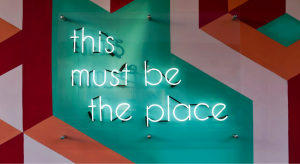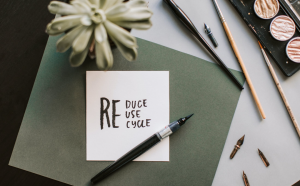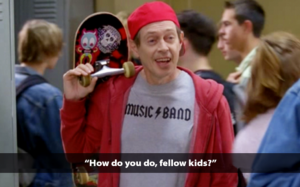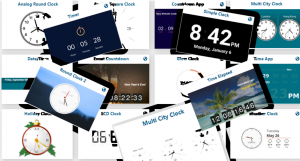Marketing and advertising strategies change with each new generation. What worked yesterday might not be as effective today or tomorrow. Gen Z, alongside Millennials, now hold the larger chunk of purchasing power making it important to know how to reach them. The entire world of advertising has been looking for ways to crack that code. Though, with the majority of these two generations not trusting outbound advertising at all, this is difficult. It makes us wonder how much power outdoor advertising has in this context, and can digital signage even get through to Gen Z?
What sets Generation Z apart?
Firstly, Gen Z is quite close to Millennials in many ways, from an advertising perspective. Both generations grew up surrounded by ads, which resulted in advertising having a lesser impact on both. A brand will find it more challenging to obtain their trust than with any other generation. They also want to see their personal values reflected in the brand of their choice. This is why they’re quick to jump ship to a different brand if they see something they don’t like.
Because of their preferences, outbound advertising is less effective with Generation Z, simply because the ad itself is trying to sell something to them. If an ad comes off as personal, reflects their values, or at the very least entertains them, then we can talk! In terms of digital signage, these expectations can be met because of the many features digital signage possesses to cater to such an audience. It offers to deliver a fun, personal, and genuine message.
Gen Z actually like digital signage
You might not expect so at first, but Gen Z is quite fond of Out-of-Home advertising. Even though they’re the generation which grew up online, this doesn’t mean they dislike the outdoors. One survey found that 81% of consumers (14-24 years old) prefer to do in-store shopping rather than online. Furthermore, 55% of them favor outdoor ads to the online ones and even find them relaxing. Perhaps this is because, unlike online ads, outdoor ads don’t jump out of nowhere or interrupt a video or block the view of something they’re doing.
Another contributing factor may be that the outdoor ad experience is less overwhelming. The sheer amount of notifications, pop ups, and ads online are colossal. Meanwhile, even with the density of outdoor advertising in bigger cities, outdoor advertising is physically less aggressive.
Lastly, it’s safe to say that outdoor ads have greater quality than online ads. Simply put, they are more expensive to deploy and require more effort to set up. Thus, its creators take them more seriously. On the other hand, anyone can deploy an online clickbait low quality A/B test ad with a minimum budget.
The value of social proof
Gen Z values the opinions and suggestions of people they respect. This is why influencer marketing is so big, not to mention feedback from friends and peers. Outbound marketing does have power, when executed well, but will never compare to genuine opinions from peers and influencers—well, at least opinions that appear genuine.
Digital signage can utilize feedback and social proof in a phenomenal way through social media apps and walls. It’s even better when a business is actively engaging with its customer base on social media. The company can then deploy these interactions to digital signage to present a business which cares about its base.
The value of values!
According to one survey, 63% of Gen Z consumers said they are more likely to buy from a brand which contributes to a social cause. Of course, the closer this cause is to the values of the individual, the greater the chance of involvement.
Gen Z, much like Millennials, want to see their values reflected in the brands and people they support. Social causes such as charity work, cruelty-free and environmentally friendly products matter to them. That’s why every brand which is involved in a social cause is certain to announce it proudly, and loudly. Similarly, if a brand has the opposite values or something Gen Z consumers dislike, they’re that much more likely to avoid it. Be careful what you support!
Authenticity is valuable
While Gen Z sticks out in many ways from other generations, it doesn’t differ too much in others. Some of their preferences are simply amplified when compared to the generations which came before. For example, offers which sound like they’re too good to be true are unappetizing to most. But younger generations view them with distrust, and may even consider them as scams. They want genuine and authentic content. Pre-written vague responses, templates, and cold messaging are not natural. They don’t feel personal and thus are easy to ignore.
Friendly and conversational content will go a long way. No, this doesn’t mean every message on your billboard has to address the viewer as a best friend. Authenticity comes in many forms. Your digital signage can include content specific to the location, local references, as well as the target audience itself.
To make things more difficult for you, excessive attempts at relatability can yield the opposite effect. It may come off as fake. For instance, when brands try using lingo they don’t understand, in hopes of catering to younger audiences, they’re more likely to be laughed at, at best, than taken seriously.
The challenging attention span
With the world becoming continuously faster each year, with the exception of 2020, the consumer attention span is becoming shorter. This applies nearly to all individuals in our quickly-shifting world, and it’s important to keep it in mind when building campaigns. The younger generations feel it even more as they already grew up in a fast-paced world. The Gen Z attention span is around 8 seconds. 4 seconds shorter than that of Millennials.
In terms of outdoor advertising, this makes the timing of the message critical. The first few seconds are key. Engagement is extremely important when creating digital signage campaigns intended to catch attention. Digital signage has the ability to get the viewer hooked in a second as it can host simple yet smart visuals, witty content, and quick messaging. Because of the short attention span, especially with younger generations, the key is to steer clear from long, complex, and dull messaging.
The value of storytelling
By now, you might be wondering how you can tell a complex story to someone with a short attention span. Well, a shorter attention span doesn’t mean expectations are less. In fact, quite the opposite. It means attention is given only to the content deserving of it. Digital signage gets through to Gen Z and Millennials by providing valuable content quickly, in a neatly packaged format. Each second engages and entertains, of course, if you know how to deliver it. Gen Z, as well as Millennials value personal stories and content engaging on the emotional level.
The reason why many digital signage creators fail at achieving this is because they try to use digital signage as a traditional tool and simply include walls of text, expecting someone to actually read through it. They are literally trying to tell a story. Instead, a story should be told through images, videos, short lines of text, letting the viewer connect the dots quickly. Stories can even be told through interaction. To really get through to younger audiences, your storytelling needs to be engaging, exciting, easy to understand, and to the point.
Use the right tools!
Gen Z isn’t the only generation which will appreciate a well-constructed digital signage setup. When it comes to your indoor displays which are aimed at existing customers, organize them neatly! Slice up your screen into multiple flows of content to cover a variety of information.
Some of the best features digital signage software has to offer are apps. Use social media apps to build a steady stream of user-generated content. Then use weather/news/time apps to give contextual information. Schedule content to shift by the time of day to make it even richer. And be sure to customize each element to fit your branding.
In case you’re not an OnSign TV user already, be sure to give it a test run for free!











